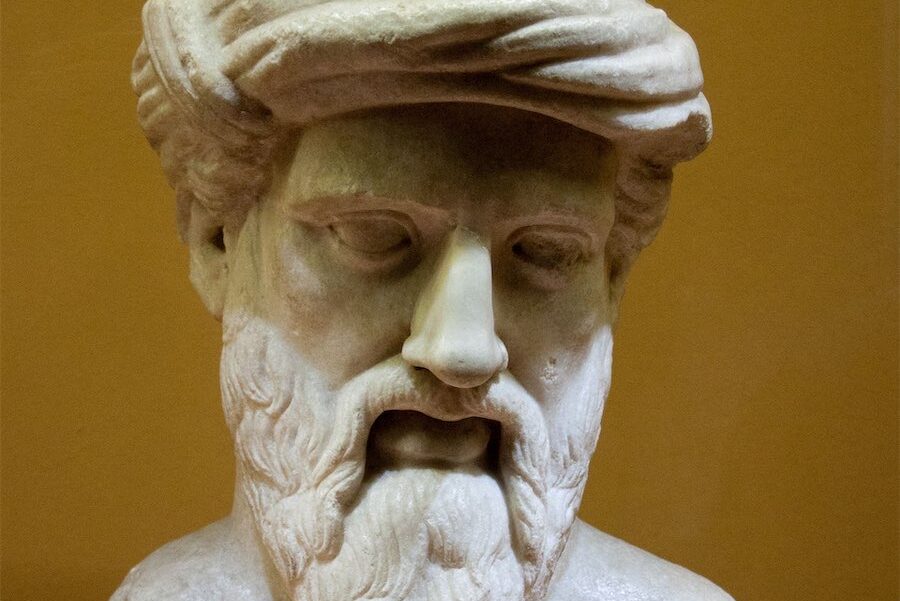
“Is mathematics a human invention or a discovery of something that was always there?” ROBERT MACKLIN invites an answer…
Grandchildren are amazing, they do such clever things. For example, they grow older at the speed of light.
Or so it seems.

Our four are scattered over Sydney and Canberra, and we mostly interact with the two Canberra girls, Aria and Allegra, 14 and 13 respectively. Both are quite beautiful and though they have very different personalities each rejoices in a delightful sense of humour. Aria was beautiful from the moment of birth; Allegra took a while (five minutes in grandchild time) to graduate from cute to stunning and is already taller than her tall sister.
Both are very bright but unlike Allegra, Aria was uncomfortable at her Steiner School and didn’t really flower academically until she joined her old primary school friends at Melrose High.
That’s where she shot to the top of the maths class and to the general astonishment of even her doting grandparents, scored 100 per cent in a tough test. She actually beat the perennial winner, the boy who only managed a paltry 98!
Amazing. Not least because the genes she inherited from our side were pretty much innumerate. However, in recent months I have stumbled across a question that has kept me awake at nights. I’m sharing it with her, but all readers are welcome to join the hunt for an answer.
Here ‘tis: Is mathematics a human invention or a discovery of something that was always there? Aria’s first response was, “a discovery”, but after a while she seemed much less certain.
For example, prime numbers – those that can only be divided by one and themselves – reveal no discernible pattern.
On the other hand, my instinctive response was “an invention” but if so, how come it’s so useful in all branches of science (except, perhaps, quantum mechanics).
Google is not much help. It simply ranges over the possibilities without reaching any conclusion. And some scientists duck the question by saying it’s both. I guess that works – more or less – if you see it as a function of our evolving consciousness; the patterns we divine in our surroundings become increasingly complex until we can only express them through the “language” of mathematics.
But then in one of those coincidences that become increasingly common as you grow older, I happened upon a New Scientist article that asked the same question in a different form in its brain-teasing back pages: “Did abstract mathematics, such as Pythagoras’s theorem, exist before the big bang?”
That elicited lots of answers, most of which said there were two schools of thought – the religious believers said, “yes” and the others “no”. There was even one that said there’s no such thing as “before” the big bang.
Another said: “There are those mathematicians who believe mathematics is invented, for whom the answer is ‘no’ because there was nobody to write it down, and those who believe it is discovered the answer is ‘yes’, because we can prove a solution exists.”
I was attracted to the contribution from one Simon McLeish, from Gloucestershire, who raised the possibility that “pure mathematics doesn’t really exist at all – never has and never will – mathematics is about abstract objects that ignore reality.”
He wrote: “For example, a line without width couldn’t exist in the real world, but that is a property of a line in geometry. The numbers that are used to measure the sides of a right-angled triangle have a mathematical precision far finer than could be obtained from a real-life triangle.
“Perfection is the soul of mathematical thinking, but it never existed in the real world.”
But of course, neither did the “soul”.
Who can be trusted?
In a world of spin and confusion, there’s never been a more important time to support independent journalism in Canberra.
If you trust our work online and want to enforce the power of independent voices, I invite you to make a small contribution.
Every dollar of support is invested back into our journalism to help keep citynews.com.au strong and free.
Thank you,
Ian Meikle, editor




Leave a Reply